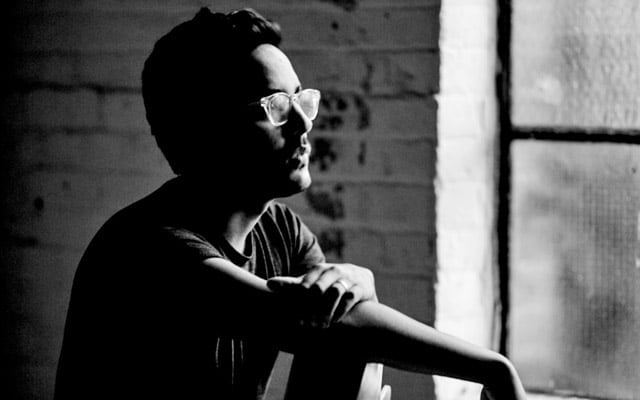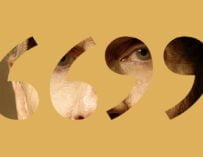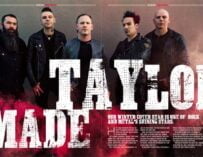
Luke Sital-Singh: “I wanted to make loud music that was offensive to parents!” Photo: Steve Gullick
The British singer-songwriter traces his path from nu metal to nu folk, alongside an interest in acting and Slow Movement
Hailing from South West London, acoustic singer-songwriter Luke Sital-Singh gently arrived on the scene with a string of EPs, produced by Snow Patrol’s Iain Archer, that were released in 2012 and 2013. The second EP, Old Flint, included the beautifully anthemic Bottled Up Tight and the third, Tornados, had the backing of Parlophone and caught the attention of the BBC for their Sound of 2014 long list. Luke’s eagerly anticipated debut album, The Fire Inside, arrived later that year and although it fell short of the Top 40, the record cemented his reputation as an emotionally captivating young songwriter.
Two years later, after leaving the major label for Brighton-based indie Raygun, Luke ventured back into the studio to work on his sophomore long-player. Produced by Villagers’ Tommy McLaughlin in Donegal, Ireland over the course of 10 days last summer, Time Is A Riddle was released this May and is a stripped-back affair that represents Luke’s more considered approach to his craft. This is mirrored by a parallel interest in the world of Slow Movement and the nature of craftsmanship, leading the troubadour around the UK to make a series of short films with glass designers, denim makers and various other forms of craftsmen.
Although he now lives in Songwriting‘s home city, we got Luke on the phone for a chat and was surprised to discover the plaintive folkster was once a Slipknot fan…
Firstly, we noticed you’re based not far from us in Bristol. What made you move here from London?
“Oh are you? Yes, I live in a flat with my wife in Redland – we’ve been here for two years. I was born and brought up in South West London, in New Malden, and it made sense to be in London for my first album, but now I’m slightly more comfortable with where I am and I don’t feel like I have to be there. Bristol’s one of those places that ticks a lot of the same boxes, it’s not far from London, and it definitely has a lot more of a community vibe.”
How did you get into music and how did your songwriting develop?
“I got into music in a fairly organic way, to some extent. I was of the kind of angsty age, in my early teens, getting into culture and owning things a little bit more, when my friends were in nu metal and grunge – we’d listen to Korn and Slipknot! As far removed as that sounds from what I’m doing now, it was still my introduction to wanting to pick up the guitar, when I wanted to make loud music that was offensive to parents!
“So that’s what we did, but for a lot of my friends that was the end of it, but it stuck with me. Alongside this was an interest in acting – I did some amateur dramatics stuff outside school and I was very interested in performing. I’m the youngest of three – I’ve got two older brothers – so I’m a bit of the annoying show-off! Something about performing was important to me, and then music was tied into that, which grabbed me more and I left acting behind.”
Obviously you don’t write nu metal, so what drew you to acoustic singer-songwriter style music?
“Strangely, in terms of where I am now, it was a TV advert for Damien Rice that was my ‘Paul on the road to Damascus’ conversion experience. I wasn’t really brought up on James Taylor or Bob Dylan, so I’d never heard anything like that before. Maybe it just hit me at the right time, but it changed my life really – I dropped the electric guitar, got an acoustic and wanted to be that guy that made beautiful, sad songs. I’d say my songwriting process began by learning Damien Rice songs, and I’d do open mics just doing covers of his songs and chuck in a few self-penned ones that were basically ripping him off!

Luke: “I can’t write quietly, and I even struggle to write a song in a room with someone else.” Photo: Steve Gullick
“I started as more of a poppy singer-songwriter: I was into the Goo Goo Dolls, John Mayer and things like that, which I wouldn’t say are influences anymore, but I’m sure there’s some semblance of them in my music – the foundations of what I learnt were from copying other people. So that’s how it started and, in some ways, I haven’t really progressed since! It struck me that it’s something that would take a lifetime to perfect.”
Did you find yourself studying Damien’s songs and picking them apart?
“I’ve never been a particularly studious person, so I don’t remember thinking of it like that. One thing that really attracted me was the way he performed his songs – the explosiveness that he could impart, just on his own. There was a real ‘journey’ to his performances: going from being very small and suddenly being very big, and the dynamics of that…
“I never actually saw his live, but I remember watching one of his performances online and I definitely studied them – I watched them over and over – and that was how I wanted to perform. There were some other people who became big influences in my life, like Josh Ritter and Ron Sexsmith – a lot of those classic songwriters – and I was enamored with it all.”
Do you think you picked up the dynamic arrangements from nu metal and grunge?
“Uh… you never know. I was thinking that as I was saying it, but I do think the nu metal phase was pretty flash in the pan. It never really grabbed hold of me – it was more of a social exercise – and I can count on one hand how many times I remember actually listening to that kind of music at home. It was just a group I was with. In terms of the music that felt like a personal identity choice, that stuck with me, was this singer-songwriter aspect… which is probably why it has lasted so long. It still inspires me today because I think it hit me at a very poignant, emotional, growing up, becoming an adult kind of time. It lodged in me and hasn’t let go.”
Was your acting phase an influence on your songwriting, in that you’re thinking about how you’ll perform a song as you write it?
“Yes, definitely. I can’t write quietly, and I even struggle to write a song in a room with someone else. I need to be quite animated and be performing the song as I write it, and feel like I’m embedding the performance dynamics that I want. I need to be able to tell whether there’s enough emotional impact in different moments, or whether the lyric is hitting the heart in the right place. So yes it’s definitely a massive part of my songwriting.”
So where did you write the majority of this new album?
“Mostly at home, actually. A couple of songs on this album I wrote back in album one territory, and didn’t make it then for whatever reason, but I’ve looked back and gone, ‘Actually, that’s a great tune, I like that.’ Other than that, they were all written in my house. Now I have a spare room with a little studio set up and I do everything in there. I’ve got a stage piano and as much set up as I can, to be able to jump from things when it’s not working and try different textures.
“Part of the ‘performance writing’ aspect is about going on instinct and trying to create a space where I can allow the thing to flow. Unless I’m feeling it, it just won’t happen and I need to stop or try something else. I’m not prolific and I don’t know all the chords – I’ve know a few and I’ve got a capo, so what else do you need? But in a sense that’s why I taught myself the piano: because I needed another palette, another canvas, to make mistakes and push me away from playing C chords all the time! I jump between acoustic guitar, piano, electric guitar and sometimes I’ll play with the computer and technology side. Not so much electronic beats, but I like recording stuff and creating sounds with reverb on the computer. Whatever I can do to inspire myself that day, I’ll give it a try.”

Luke Sital-Singh: “I’m not going to lie, I’m not a very good middle eight writer.” Photo: Steve Gullick
Do you develop songs at all during the album recording process?
“When we got into the studio in Donegal, where we were recording it, we did a bit of tweaking of middle eights. I’m not going to lie, I’m not a very good middle eight writer – I kind of get there and get tired and can’t be bothered! So it was quite nice to have Tommy there, who helped produce the album, who’s also a good songwriter and helped make the middle eights a bit stronger.”
How do you feel about collaborating?
“When I did the first record on the big label, there was a lot of co-writing, which I’m not against at all, but in hindsight I wish I’d kept more of a balance between my own vision and sharing that with other people. You’ve got to notice when your vision may be getting filtered away by maybe having too many collaborators. I was a bit too young and a bit too willing to please, so I didn’t feel in the right place where I could tell them to shove it! But I had some really amazing experiences and you also learn a ton from those writers. You can be a bit cynical about professional songwriters, but they’re still good at what they do, you’re learning a lot, they’re nice people and it can be quite fun.”
You talked about acting and I wonder whether you ever write lyrics in character?
“Not really. There’s one song on this album that is, but it’s first time I’ve ever done that. Killing Me is written from the perspective of my grandmother singing to my late grandfather, and that’s the only time I’ve at least – successfully – done it. I have no real desire to do that particularly; I only really know my own mind. But for some reason, on Killing Me I was very moved by grandmother and I often thinking about losing people that you love and how heartbreaking it is. I’ve never necessarily lost anyone super-close to me, and maybe that’s why I think about it too much. The song just came out really; I wasn’t intending to write it. In some ways I’m not necessarily playing a specific character, but it’s from her perspective or someone who has lost someone. It was a tricky one and I don’t feel like I’m going to do it again any time soon, but I don’t really intend these things – I just write what’s moving me and how it’s working at that point.”
Did the lyric or the music come first, with that song?
“With that song especially it just flowed out, and with most of my songwriting, it’s all at the same time. I might have one chord progression on the piano, looping it around, and I just start singing. Then my hands just move to the next section and another melody will come, and I word will come, and I’ll go with that. To accentuate that feeling I’ll put headphones on and put the reverb up in my cans, to get a sense of big-ness and lose myself in the room, and also to feel like I’m on stage, creating emotions and seeing where they go.”
You’ve recently been aligning your music with ‘makers’ and craftspeople. Is that because you see yourself as a craftsman?
“Yes and no. I like the idea of making stuff by hand, taking the time to think about the process and make things properly. But there’s a part of music that’s a but ethereal and it doesn’t have that element as much – a melody is a bit of a vapour; there’s nothing tangible. It’s nice when you get a bit of vinyl through the post, and that kind of ticks the feeling of wanting a physical representation, but I didn’t make the vinyl myself! There’s a jealously, to some extent, because I’d love to make stuff. So that’s one of the reasons why I like bringing in that aesthetic into my music.
“And part of the project with these makers is filming them and talking to them about their stuff. It’s a weird one, but it’s still something I’m exploring and thinking through because it does seem to fit my music. It’s just for my own interests and my own enjoyment really. It feels important to me to have stuff that’s made well. The t-shirts I sell on the tour are made by a local guy in Bristol, rather than some big company that could do it a couple of quid cheaper.”
Interview: Aaron Slater
Luke Sital-Singh’s latest album Time Is A Riddle on out now via Raygun Records/Red Essential. To find out more, go to: lukesitalsingh.com



































Related Articles